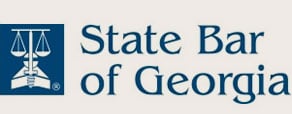Worry over bills, debts, and bankruptcy could be keeping you up at night. It doesn't have to be that way.
Recently, bankruptcy filings have fallen from normal levels. The news is puzzling to some degree, because the country is in a recession and unemployment is at historic highs. Economic weakness and job loss are both driven by COVID-19, the global pandemic that began earlier this year. Recessions and job loss usually spur an increase in bankruptcy filings, not an ebb.
One explanation could be the effects of COVID itself. Aggressive actions like foreclosures, evictions, and wage garnishment often cause folks in financial trouble or debt to declare bankruptcy. But during the pandemic, banks, landlords, and debt collectors could be holding off on these actions. This is an unusual time in that economic pain is very widespread – and unfortunately, it’s not over yet.
[Check out our Bankruptcy FAQ for answers to common questions about bankruptcy.]
But we think it’s a different reason. People are afraid of bankruptcy. Even if unopened bills stamped “past due” are piling up, even if you haven’t paid the rent or mortgage or are struggling to come up with payments, the specter of bankruptcy looms like a frightening ghost. Worry over bills, debts, and bankruptcy could be keeping you up at night.
You may worry that bankruptcy will mean the loss of your home to pay the bank or your debts. You may worry that bankrupt individuals have to give up their car, or tools you need to earn a livelihood. You may fear everything you owe being liquidated to satisfy creditors.
Another set of fears involves the public knowledge of bankruptcy. Are you worried that your friends, family, and neighbors will find out?
And then there’s your credit rating and good credit standing. You want to keep a good credit rating and don’t want the perceived black mark of bankruptcy on your record.
[Make sure you understand every option available. Here's how bankruptcy protects you and stops creditor harassment.]
In the meantime, you’re desperate and scrambling to pay your bills. Worse, you may be tapping savings accounts or your retirement funds, like 401(k)s or individual retirement accounts, to stay afloat. Long term, you’re hurting your financial situation even more.
Why You Shouldn’t Fear Bankruptcy
In fact, bankruptcy is nothing to fear. Bankruptcy provides for the orderly discharge of your debts. It’s a way to manage your situation by facing up to it and getting a fresh start. Even famous people like Larry King, Michael Jackson, and Cyndi Lauper have filed and gotten their lives back on track.
Let’s address common bankruptcy fears, in order.
It’s true that in some bankruptcies, some of your assets may be sold to pay your creditors. But bankruptcy law also recognizes that people need a place to live, reliable transportation, and necessary personal property, such as clothing and items needed for their business.
As a result, people filing for bankruptcy are typically allowed to keep some of their assets, whether it’s your home, car, or other personal property. (In fact, the attorneys here at Woodall & Woodall can work with you on these items.)
Will your family and friends find out? It’s very unlikely, unless you tell them. But remember: bankruptcy is no cause for shame. If you lost a job or had your hours cut back due to COVID, it’s no fault of yours. The fact is, anyone can fall upon hard economic times. What matters is how you handle hard times when they come.
[Worried that your neighbors or friends will discover you filed for bankruptcy? There are very few ways someone could find out. Watch and learn to see why.]
Bankruptcy is a prudent strategy to help with debts. It can help you build a stable financial future, by avoiding spending every penny to serve your creditors.
Now, will your credit score fall? Frankly, yes. Your credit score and credit standing will be negatively affected by bankruptcy. But you can also start building it back up immediately. In roughly 2 years, if you take the right steps, your credit rating will be back in the good to excellent range.
In fact, we offer an education program designed to rebuild your credit. The moves toward good credit are prudent financial moves, such as taking care to pay bills on time. They can stand you in good stead through your life.
What Happens in Bankruptcy?
Perhaps one of the biggest fears stopping people from bankruptcy is fear of the unknown. So let’s discuss what happens when you declare bankruptcy.
There are two forms of bankruptcy: Chapter 7 and Chapter 13. Chapter 7 requires a means test. Your income needs to be below a certain level to qualify. If it’s above that, you would file Chapter 13.
Chapter 7 eliminates your unsecured general debt, such as credit cards and medical debt. You no longer owe it.
If you file for Chapter 13, a repayment plan manageable for you is developed. The plan lasts up to 5 years. The plan may pay back the whole amount you owe or just part of it. But after the 5 years, you no longer owe anything.
Bankruptcy isn’t failure, and it’s nothing to fear.
If you have questions or concerns, it’s a smart move to consult a bankruptcy lawyer. We offer a free initial consultation to discuss your situation. Set you mind at rest. Call us for free at 229-247-1211.






